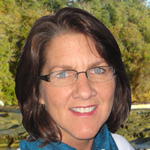I was surprised years ago by Michael J. Fox’s skill as a writer. I read ‘Lucky Man’ when it first came out in 2002 and wondered if the creative piece that informs his acting also contributes to his engaging writing. What was most notable, however, was his outlook: this was a grateful man. Years after his initial diagnosis of Parkinson’s, he is still feeling fortunate. Upon hearing that there might be what the media is calling an ‘optimism gene’ (based on research by psychologist and neuroscientist Elaine Fox [no relation to Michael]. See article in Maclean’s, August 7, 2013) he inquired whether he might have it. As it turns out, he does not. What he does have are well-worn neural pathways of positive thoughts which, over time, have just become more established, despite the increase in his physical symptoms.
The same day I read the Maclean’s article, I had an hour long conversation with my mother. (I have written of her decline previously on this site.) There is a special grace needed for her these days, as TIAs (mini-strokes suffered in the last several years) have led to a loop in her thinking: she travels over the same disappointments repeatedly, not being able to think differently about her surroundings. Her doctor says some people age gracefully, and he and I both understand the implication that some do not.
There is also a special mercy needed for my sister who selflessly encouraged our parents to move to her city in Alberta last year. When the move was suggested it was very gratefully received by both our parents, as none of us had lived in the same province for decades. We all pictured mom happy to finally be in the same city as at least one of her daughters, and the same province as her favorite (firstborn) granddaughter and her newborn baby. They could share special time more frequently and without such heavy goodbyes. The good aspects of the move would be VERY good. And the difficult pieces of this stage in life would also exist even if my parents had remained in Toronto: homecare is stretched to the maximum; there are politics in any residence (senior or otherwise); and the person my mom was socially (friendly and positive and likable) has been altered substantially by the TIAs.
What she is not able to see or remember is that her Ontario friends were no longer able to visit face to face (most are no longer driving); her dear brother (her only surviving sibling) is in the last stages of cancer and is unable to visit; and the residents she did know and connect with formerly in the Toronto area have now passed away or been moved to higher care. In a nutshell, there were already a lot of losses even without the move; the hard things would still be VERY hard. The equation (and subsequent decision to move) seemed simple: present family outweighs absent friends. But this is nowhere near simple and the facts are less important than mom’s interpretation of them. The twice-weekly visits are not viewed as preferable to the previous annual visits, but as inadequate to compensate for the other five lonely days of the week; they are simply not enough.
And so, unlike Michael J. Fox, she is in an ongoing state of disappointment. And it is not her fault. It’s her brain and the toll of years. She was a soldier during her surgeries and breast cancer years ago. She has just run out of steam. And it’s a sad and hard stage for us all.
 Cathy Sakiyama, M.Ed.
Cathy Sakiyama, M.Ed.
Website
See all articles by Cathy Sakiyama




I feel sad for you Cathy, as the primary family caregiver on deck for your parents’ final lap. I was in the same boat. You have got the right perspective on it. You need to do the best you can and then forgive yourself for not being able to ‘make it right’ for your beloved parents.
I visited my Mom and Dad every day, for most of the last three years of their lives in Alberta long term care. I put my own career and life on hold to be able to minimize any feelings of abandonment they had about “being put in a nursing home.”
I needed to be there….but it was to assuage my own despair as much as to demonstrate to them my own love and constancy.
Hi Judi, I have a sinking feeling I never responded to your kind letter above. (even tho I submit articles on occasion I’m afraid I am not frequently on any sites) It sounds like you may not have had any sibling to share the visiting time with your parents and it’s a remarkable thing that you were with them daily. Such a huge sacrificial service and act of love for them –one that you would not have left undone but which was exhausting. I’m not sure how long it has been since your parents have been gone but I trust there has been some healing for you. We all do our best and you were exceptional, judi. God bless, cathy